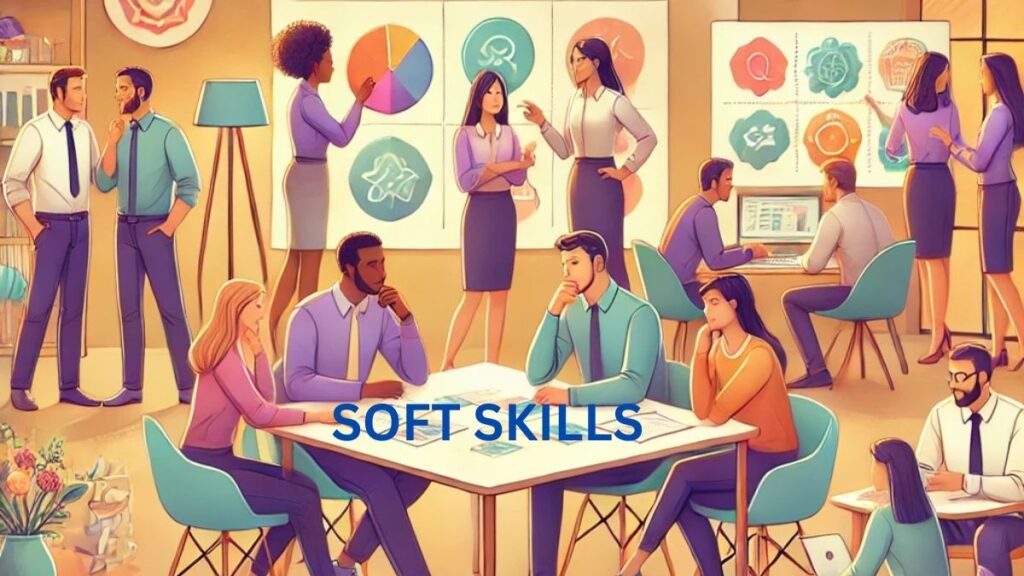In today’s fast-paced and competitive job market, learning the right job skills is more important than ever. Whether you’re just starting your career, looking to switch industries, or aiming for a promotion, mastering the skills for jobs that employers value can give you a significant edge. But what skills do you need, and how can you learn them? In this guide, we’ll explore the most in-demand job skills and provide tips on developing them effectively.
Why Learning Skills for Jobs Is Essential
To stand out in the job market, you need a combination of hard skills (technical expertise) and soft skills (interpersonal abilities). Learning the right skills for jobs will help you:
- Increase Employability: Employers are always looking for candidates with relevant and up-to-date skills. Having the right skills increases your chances of getting hired.
- Improve Job Performance: By continuously improving your skill set, you can perform better at your job, leading to higher satisfaction and career growth.
- Stay Competitive: The job market is constantly evolving, and to remain competitive, you need to learn new skills and adapt to changes in technology and industry trends.
- Enhance Career Growth: Acquiring new skills makes you a more valuable employee and positions you for promotions, salary raises, and career advancement.
Types of Skills for Jobs
There are two main categories of skills for jobs: hard skills and soft skills. Let’s dive into both.
1. Hard Skills: Technical Expertise
Hard skills are specific, teachable abilities that are typically acquired through education, training, or hands-on experience. These skills are essential in many fields and can be directly applied to your job. These are some of the most sought-after hard skills by employers:

- Computer Skills: Proficiency in software like Microsoft Office, Google Workspace, and industry-specific tools is essential for most jobs today. Learning coding languages (like Python, JavaScript, or HTML) is also highly valuable.
- Data Analysis: Companies need employees who can interpret and analyze data to make informed decisions. Learning tools like Excel, Tableau, or SQL can boost your employability.
- Digital Marketing: Understanding SEO, social media marketing, email marketing, and other digital marketing strategies is a must-have in today’s business landscape.
- Project Management: This skill is vital across a variety of industries and helps ensure smooth operations and successful outcomes. Tools like Trello, Asana, and Microsoft Project, along with methodologies like Agile and Scrum, are in high demand.
- Financial Literacy: Knowing how to manage budgets, analyze financial statements, and use accounting software can set you apart, especially in managerial or finance-related roles.
2. Soft Skills: Interpersonal Abilities
Soft skills are non-technical skills related to how you interact with others and approach work. These skills are equally important and often make the difference between success and failure in a job. Employers place a high value on these essential soft skills:

- Communication: Whether you’re writing emails, presenting ideas, or collaborating with a team, effective communication is crucial in any role.
- Problem-Solving: Employers appreciate employees who can identify problems, think critically, and come up with solutions quickly and efficiently.
- Teamwork and Collaboration: Being able to work well with others, respect diverse opinions, and contribute to a team is essential in most jobs.
- Time Management: The ability to prioritize tasks, meet deadlines, and stay organized is crucial for job success, especially in fast-paced environments.
- Adaptability: The ability to adapt to changing circumstances, learn new tools or processes, and stay flexible in the face of challenges is highly valued by employers.
How to Learn the Right Skills for Jobs
Now that you know the types of skills employers are looking for, let’s explore how you can acquire them:
1. Take Online Courses
One of the easiest ways to learn skills for jobs is through online courses. Platforms like Coursera, Udemy, LinkedIn Learning, and edX offer courses in a wide range of fields, from technical skills like coding to soft skills like communication. Many courses are free or affordable, and some even offer certification upon completion.
2. Attend Workshops and Bootcamps
If you’re looking for hands-on training, consider attending workshops or boot camps. These immersive, intensive programs focus on specific skills, such as coding, digital marketing, or project management. Boot camps are an excellent option for those who want to gain job-specific skills quickly.
3. Read Books and Articles
Books, articles, and blogs are valuable resources for learning both technical and interpersonal skills. If you’re looking to dive in, here are a few excellent books to begin with:
- “The 7 Habits of Highly Effective People” by Stephen Covey (for soft skills)
- “The Lean Startup” by Eric Ries (for entrepreneurship and project management)
- “The Data Warehouse Toolkit” by Ralph Kimball (for data analysis)
- “For those interested in digital marketing, ‘SEO 2024’ by Adam Clarke is a must-read.
4. Seek Mentorship and Networking
Learning from someone with experience is one of the best ways to acquire new skills for jobs. Seek out mentors in your industry who can guide you through career development, offer valuable insights, and help you gain hands-on experience. Networking events, industry conferences, and online communities like LinkedIn are great places to connect with professionals.
5. Practice and Apply What You Learn
Once you acquire new skills, practice them in real-life scenarios. For example, if you’re learning to code, working on personal projects, or contributing to open-source projects. If you’re improving your digital marketing skills, create your blog or work on marketing a local business. Applying your skills in a practical setting will enhance your learning and make you more marketable.
The Most In-Demand Skills for Jobs in 2025
As we move into 2025, some skills will become even more critical due to advancements in technology and changes in the job market. These are some of the most important skills that will be in demand for future job roles:
- Artificial Intelligence (AI) and Machine Learning (ML): Understanding AI and ML will be crucial in fields like tech, healthcare, finance, and even marketing.
- Cybersecurity: As more businesses move online, there is an increasing demand for professionals who can protect sensitive data and systems from cyber threats.
- Cloud Computing: Cloud-based solutions are now the backbone of many businesses. Learning platforms like Amazon Web Services (AWS) or Microsoft Azure can boost your job prospects.
- Emotional Intelligence (EQ): In addition to IQ, employers are placing more value on EQ—how you manage your emotions and understand others’ emotions.
- Remote Work Skills: As remote work continues to rise, skills like digital collaboration, virtual communication, and self-management will be in high demand.
Key Takeaways
- Learning the right skills for jobs is essential for career success and professional growth.
- Focus on developing both hard skills (e.g., technical expertise) and soft skills (e.g., communication, problem-solving) to become a well-rounded candidate.
- Online courses, workshops, books, and mentorships are great ways to learn new skills.
- Stay up to date with in-demand skills like AI, cybersecurity, and emotional intelligence to stay competitive in the job market.
FAQs
Q1: How much time does it typically take to acquire a new job-related skill?
A: The time it takes to learn a new skill depends on the complexity of the skill and the amount of time you can dedicate to learning. Certain skills can be mastered within weeks, whereas others might require months of dedicated effort
Q2: Can I learn skills for jobs without formal education?
A: Yes, many job skills can be learned through self-study, online courses, and practical experience. Formal education is not always necessary for skill development.
Q3: How do I know which skills are in demand for my industry?
A: Research the job market, look at job descriptions in your field, and network with professionals to understand the skills employers are seeking.
Q4: Are soft skills just as important as hard skills?
A: Yes, soft skills are equally important as hard skills. While technical abilities are essential, how you work with others, manage time, and communicate can significantly impact your career success.
Q5: Can learning new skills help me get a higher-paying job?
A: Absolutely! Acquiring valuable skills can make you more competitive, increase your value to employers, and potentially lead to higher-paying opportunities.
Conclusion
Learning the right skills for jobs is a continuous process that will benefit you throughout your career. Whether you’re just entering the workforce or looking to upgrade your skills for a new job, focusing on both hard and soft skills will help you stay ahead of the competition. Keep learning, practicing, and applying your skills, and you’ll open up a world of career opportunities.